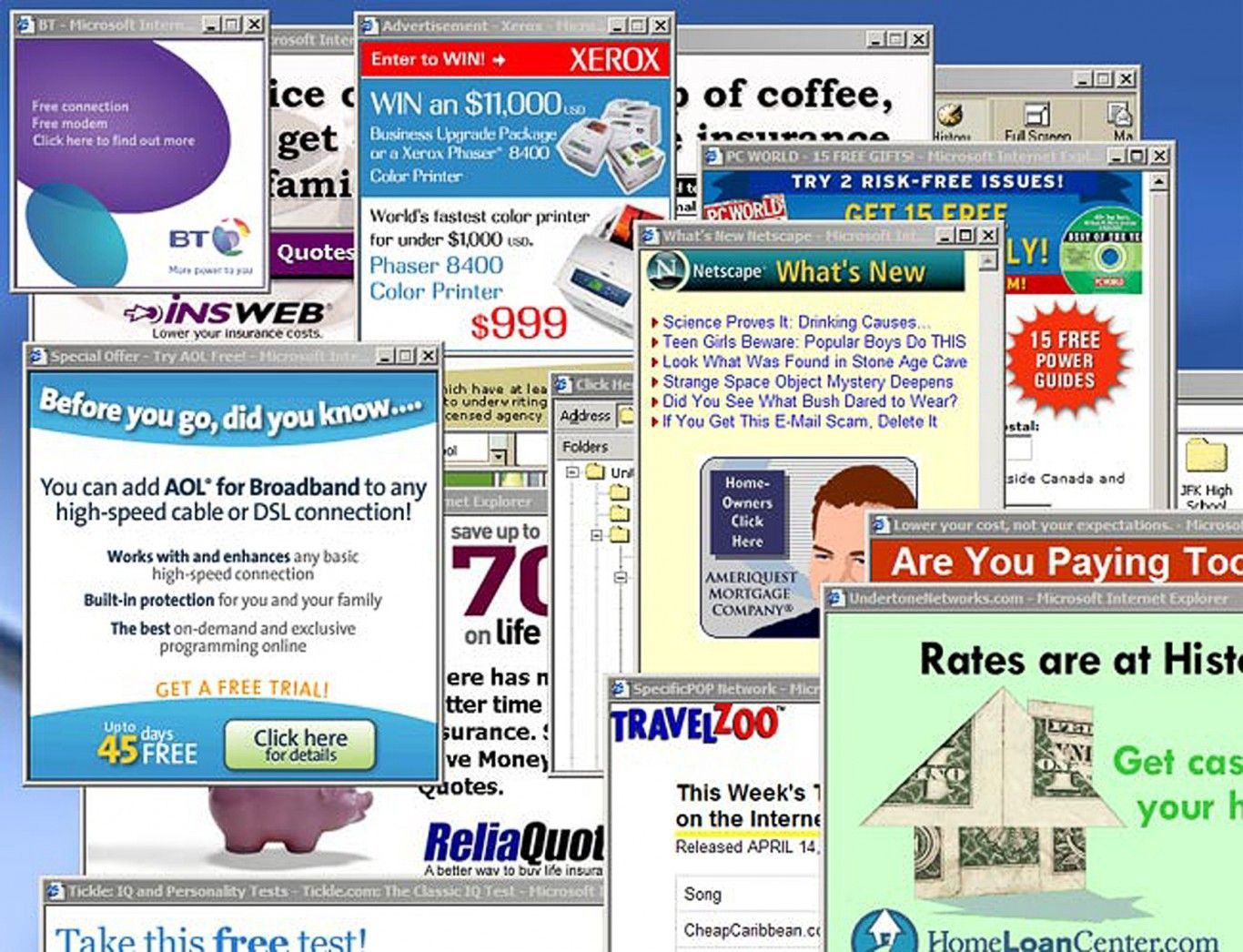Attention Monsters and the Radical Plan for Winning Back Our Minds

The current ecosystem surrounding Web 1.0 is reaching a saturation point. The internet has been tuned to maximize our addiction levels and users are literally losing it. Look no further than the effect of iPhones on mental health; the deterioration of public discourse; why minimalism is on the rise; why meditation apps keep raising money; why people crowdfunded a phone that only makes calls; why millennials are enjoying the outdoors in RVs; and why boutique fitness studios have become the new church. The tide has shifted and a new ecosystem is on the verge of being built. But until then, we have to continue to fight off “attention monsters” (Craig Mod’s Stab a Book, the Book Won’t Die) in an effort to keep our minds.
I am not going to cover what needs to be done by you as an individual. You can leave your phone in your living room. You can limit how much time you spend on apps. And you can control how you browse the internet. I am definitely not going to discuss data privacy because those are the Terms & Agreements you signed up for. I am going to paint a radical framework for a path forward that would alleviate a lot of the previously listed issues. The framework focuses on two things: 1) ridding the internet economy of digital advertising and 2) reassessing the social value of advertising by stepping out of the realm of technology altogether.
But first, a very quick background on the “original sin” of the internet.
The wrong turn

The internet never intended to adopt the media advertising-supported revenue model — that’s just how history kind of unfolded. Ethan Zuckerman, inventor of the pop-up ad, famously referred to advertising as the original sin of the web. Another internet pioneer, Mark Andreessen, notes that in the early internet days, he and Netscape pursued a built-in payments platform as part of the browser, but incumbents in a heavily-regulated industry turned him down. “Had we had internet, scale, money, and trust wired in early, the internet economy would not be based on advertising, it would be based on money,” said Andreesen. The intention of the internet economy was never to have it be financed by ads — that was just the path of least resistance at the time.
Breaking from the chains of digital advertising
Fast-forward to Web 2.0 and these first principles are being revisited. First and foremost, content-creation badly needs a new business model. The current business model is centered around digital advertising and consists of four key players: advertisers, middlemen (DSPs, trading desks, exchanges, SSPs), publishers, and users. The advertisers and the middlemen are the attention monsters: two entities that largely bring very little positive purpose to the internet and mostly contribute to our anxiety. Advertisers, backed by major consumer brands, feed the middlemen and the middlemen broker them to publishers. Publishers — consisting of both apps and traditional media outlets — generate content in order to attract users or an audience. In the context of tech, users reciprocate by contributing their own content to publishers. Occasionally, enough impressions allows for dollars to flow back to the advertiser in the form of a purchase.

I will get to the advertisers in the next section, but will begin by slashing one of the monsters from the ecosystem. The middlemen is a function of the original sin, and should never have been there in the first place.

That leaves us with advertisers, publishers, and users. As Andreesen suggested, had the internet been constructed with a functioning form of built-in payments, the ecosystem would have revolved around publishers and users. Micropayments or subscriptions would allow users to pay publishers for content download and publishers could compensate users for content upload. If you need proof-of-concept, look at Netflix and YouTube. This doesn’t mean that advertisers would no longer play a role in the ecosystem — they could — but the economics would change. Rather than solely paying the publishers for ad space, advertisers would directly compensate users for their attention. In return, advertisers would have a more natural, less antagonistic relationship with their future customers. The idea of engaging directly with an audience is not new. Industries like gaming, podcasting, and publishing are already well on their way in carving out something that resembles the above.
Throwing ads into the bin
Second, and the even more radical portion of this piece, advertising needs to be viewed as a negative external cost to our society. Perhaps an offshoot of the rise of ESG, major brands are actually already beginning to flirt with this idea.

In his 1914 book, Drift and Mastery: An Attempt to Diagnose the Current Unrest, Walter Lippman eloquently described the advertising issue. “Advertising is in fact the weed that has grown up because the art of consumption is uncultivated.” At the core of all of our hyper-consumerism is advertising, and never before has our society considered making do without it. Plastic straws? Vaping? Data privacy? Today’s hottest policy debates are a function of the marketing machine, and regulating any of the mentioned issues would be regulating the symptoms, not the cause. It is politically more convenient to regulate industries than applying a cross-sectional, cross-functional review. While Human Resources and Finance adheres to tight rules, Marketing gets away with a lot. For most of America’s history, advertisers would ride the coattails of the First Amendment suggesting that they are protected by free speech. But was that really its purpose? Despite a more balanced opinion in 44 Liquormart vs. Rhode Island, scholars suggest commercial advertising is “entitled to substantial First Amendment protection, albeit less than political, ideological, or artistic speech.” And yet we see more commercial advertisements in our lives than rallies, protests, or street performers.

Thought: What if the ultimate attention monster — advertising — was simply removed from the ecosystem? Moreover, how radical and socialist would the idea of banning advertising really be? I don’t just mean tobacco or false advertising — I mean anything that is unsolicitedly trying to sell you something when you’re among the general public. Four states (Alaska, Hawaii, Vermont and Maine) eliminated billboards at various points throughout the 20th century, with little apparent impact on their economies (see where each of them rank now among US states by GDP per capita). The idea of restraints on advertising has gained traction globally among cities. Sao Paulo famously banned billboards in 2006 as part of its Cidade Limpa campaign. Despite the ban, the Brazilian metropolis is one of the largest urban economies in the world. Of course there are the likes of Cuba, where commercial advertising has been banned since the 1950s. Cuba is a country with limited consumer choice due to government control; colorful, crumbling Art Deco architecture along the streets; and an extreme grip on freedom of expression. But I don’t see how eliminating advertising in a fully functioning capitalist society will somehow magically turn us into Cuba. In fact if you are afraid of socialism, it is the idea of a city government selling every piece of empty space for the purposes of pumping up a broken budget that is more likely to do that. It is the idea of the media feeding us garbage rather than allowing us to choose our own content that constrains our thinking. To ban or restrain commercial advertising actually helps unwind pockets of socialism.
My hunch
America: Let's have a party. I'll bring the software!
— Paul Graham (@paulg) February 23, 2020
China: I'll bring the hardware!
EU: I'll bring the regulation!
America, China:
To bring this full circle, digital content-creation is on the verge of a new business model and I lay out above what that could look like. Advertising, despite what I view as being guilty of fueling many societal epidemics, has traditionally been given a major hall pass and needs to be reviewed. I actually don’t want to regulate anything and I am hopeful that corporations reach these conclusions on their own. If we do go down the regulation route, then why do we regulate Big Oil, Big Tobacco, Big Tech, Big Banks, Big Pharma, but Big Media gets a pass. Either we regulate it all or we regulate nothing. If Europe wants to really tackle Big Tech, then they should spend more time reviewing the source of the dollars that influence social and mass media — advertising — than looking at the publisher itself. After all, if the claim is that you’re entitled to your data, shouldn’t you also be entitled to your headspace? Tech will fix the middleman. Policy should fix advertising.
I don’t know if an ad-free web will economically be feasible. But I also know that the current setup of the internet economy is not psychologically feasible. And if I have learned anything about economics and markets, it’s that both are heavily driven by psychology. Here’s to an artisanal web. Here’s to blockchain. Here’s to subscriptions. Here’s to micropayments. Here’s to information dieting. Here’s to getting a handle on our public discourse. Here’s to trashing all of the ads on the internet the same way you and I trash marketing material we receive in the mail today.
Particularly had a lot of fun writing this piece and came across a good amount of inspirations. For more brain food and some entertainment, see below.
https://www.match2one.com/blog/what-is-programmatic-advertising/
https://archives.cjr.org/the_audit/the_backstory_on_native_advert.php
https://economyofbits.substack.com/p/marc-andreessens-original-sin
Maciej Ceglowski — The Internet With a Human Face — btconfDUS2014
https://www.c2native.io/blog/data-the-key-ingredient-in-programmatic-marketing-part-i/
https://newrepublic.com/article/147887/ban-targeted-advertising-facebook-google
https://nav.al/the-fifth-protocol
https://www.amazon.com/Political-Economy-Media-Enduring-Emerging/dp/1583671617

